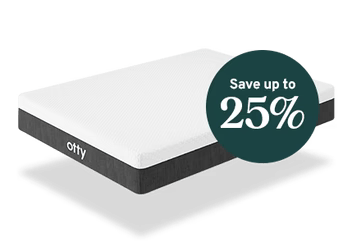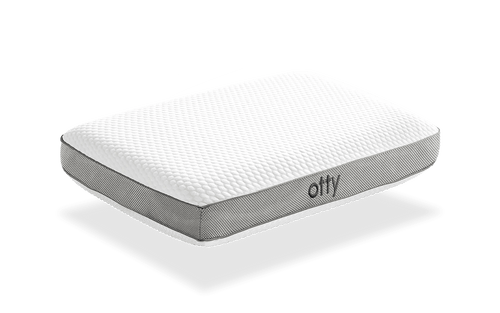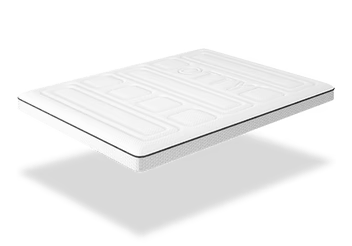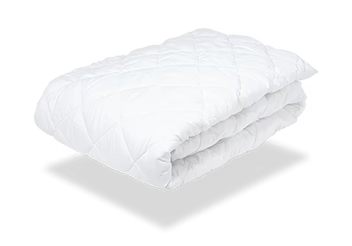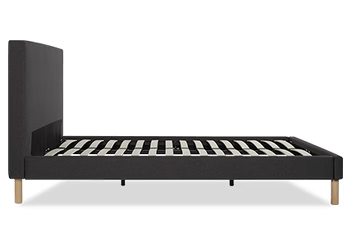Choosing the right mattress for joint pain and arthritis is crucial.
Living with arthritis and joint pain can be a daily struggle, with joint pain and chronic discomfort impacting every aspect of your life, including your sleep.
This guide will look at how arthritis impacts your sleep as well as what to look for when choosing a mattress for arthritis and joint pain.
Table of contents
How Arthritis Affects Sleep
The persistent joint pain and stiffness associated with arthritis can make finding a comfortable sleeping position a real challenge
This discomfort often leads to frequent sleep interruptions, resulting in a poor-quality night's rest.
Research conducted by Arthritis UK has highlighted a 'vicious circle' where the pain caused by arthritis prevents a good night's sleep, and the lack of sleep, in turn, exacerbates the pain
This cycle can be incredibly difficult to break, especially if your mattress isn't providing the support and comfort you need
The constant pain and discomfort can also lead to increased fatigue, which can result in stiffness, muscle tension, and headaches
This can have a knock-on effect on your mental health, potentially leading to reduced concentration, poor memory, and even depression.
How The Right Mattress Can Help With Arthritis
The importance of choosing the right mattress for arthritis cannot be overstated.
A good mattress can make a significant difference in managing the chronic pain associated with arthritis. It can provide the necessary support and comfort to alleviate joint pain and improve sleep quality.
Arthritis sufferers often experience considerable pain in various parts of the body, including the back, hips, neck, and shoulders. This pain can make it challenging to find a comfortable sleeping position, leading to frequent sleep interruptions. A good mattress for arthritis can help alleviate this issue by providing the right balance of support and comfort.
A mattress that is too soft may not provide adequate support, leading to poor spinal alignment and increased joint pain.
On the other hand, a mattress that is too firm can exacerbate pressure points, causing discomfort and pain. Therefore, it's crucial to find a mattress that offers the right level of firmness and support for your specific needs.
Factors to Consider When Choosing a Mattress
When choosing the best mattress for arthritis, there are several key factors to consider:
Firmness Level
The firmness of a mattress is crucial for providing the right amount of support and comfort. It's important to choose a mattress that aligns with your personal comfort preferences and the specific needs of your body.
Pressure Relief
A good mattress should provide excellent pressure relief, especially in areas that are prone to pain such as the hips, neck, shoulders, and lower back. This can help to alleviate discomfort and promote better sleep.
Material Type
The type of material used in a mattress can greatly affect its comfort and support levels. Memory foam, latex, and hybrid mattresses each have their own unique benefits.
Ease of Movement
If you tend to move around a lot during sleep, you'll want a mattress that makes it easy to change positions without causing discomfort.
Best Sleeping Positions for Arthritis Sufferers
Side Sleeping with a Pillow Between Knees
This position can help to alleviate back pain and is particularly beneficial for those with hip and knee arthritis. The pillow acts as a spacer to keep your hips aligned and relieve pressure on your joints.
Back Sleeping with a Pillow Under Knees
Lying on your back can distribute weight evenly across the widest area of your body, reducing pressure points and aligning your internal organs. Placing a pillow under your knees can further reduce back strain.
Fetal Position
This position can be beneficial for those with spinal arthritis or stenosis. Curling up can open up the joints in the spine and relieve pressure.
Reclined Position
If you suffer from isthmic spondylolisthesis, a condition that can cause arthritis, sleeping in a reclined position can curve your spine and reduce pain.
Everyone is unique, and what works for one person may not work for another. It's important to find a comfortable position that works for you and helps to alleviate your specific pain points.
Additional Features to Consider for Arthritis Sufferers
Beyond the basic considerations of comfort and support, there are additional features in a mattress that can potentially alleviate some of the discomfort associated with arthritis.
Temperature Regulation
When your body temperature fluctuates, it can exacerbate arthritis symptoms, causing more discomfort and pain.
A mattress with excellent temperature regulation can help maintain a consistent body temperature throughout the night.
This can be particularly beneficial for those with arthritis, as it can help to alleviate some of the discomfort associated with the condition.
Edge Support and Ease of Movement
Arthritis sufferers often experience stiffness and limited mobility, which can make changing positions during sleep challenging. Therefore, a mattress with excellent edge support can be a game-changer.
Edge support is the level of support a mattress provides along its edges. A mattress with strong edge support will not sag or collapse when you sit or lie near the edge. This feature is particularly beneficial for arthritis sufferers who may struggle to get in and out of bed.
Support and Comfort Layers
Support and comfort layers work in tandem to provide the necessary level of support and comfort to alleviate pressure points and promote proper spinal alignment.
The support layer, often made up of pocketed coils or high-density foam, provides the foundational support for the mattress. This layer is crucial in maintaining the shape of the mattress and providing the necessary firmness to support the body's weight.
For arthritis sufferers, a mattress with a robust support layer can help maintain proper spinal alignment, reducing the strain on joints and alleviating pain.
On the other hand, the comfort layer, typically composed of memory foam, latex, or cool gel, provides the cushioning and contouring that cradles the body. This layer is responsible for the soft, plush feel of the mattress and plays a significant role in pressure relief. A well-designed comfort layer can conform to the body's shape, distributing weight evenly and reducing pressure on sensitive joints.
Summary and Key Takeaways
Choosing the right mattress for arthritis is about understanding your unique needs and choosing a mattress that offers the right balance of comfort, support, and pressure relief
Whether it's a memory foam, hybrid, or orthopaedic mattress, the key is to ensure it aligns your spine, supports your joints, and eases the pressure points that can cause considerable pain
Also consider other elements of the mattress that may help with arthritis, like temperature regulation, edge support and comfort layers.
Ultimately, each arthritis suffer is unique and should choose a mattress based on their specific sleep preferences.
